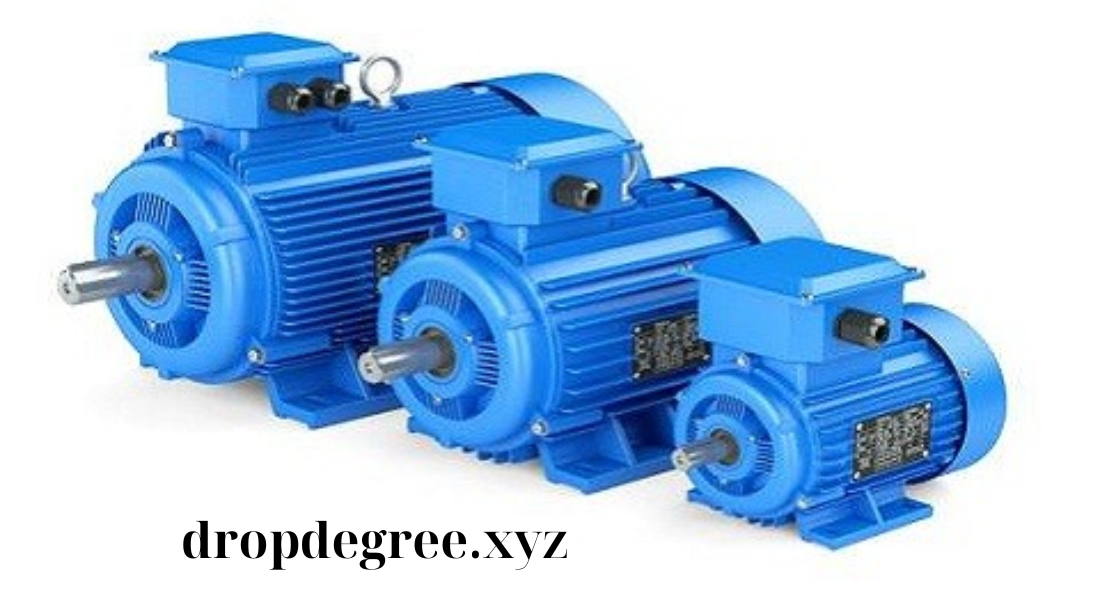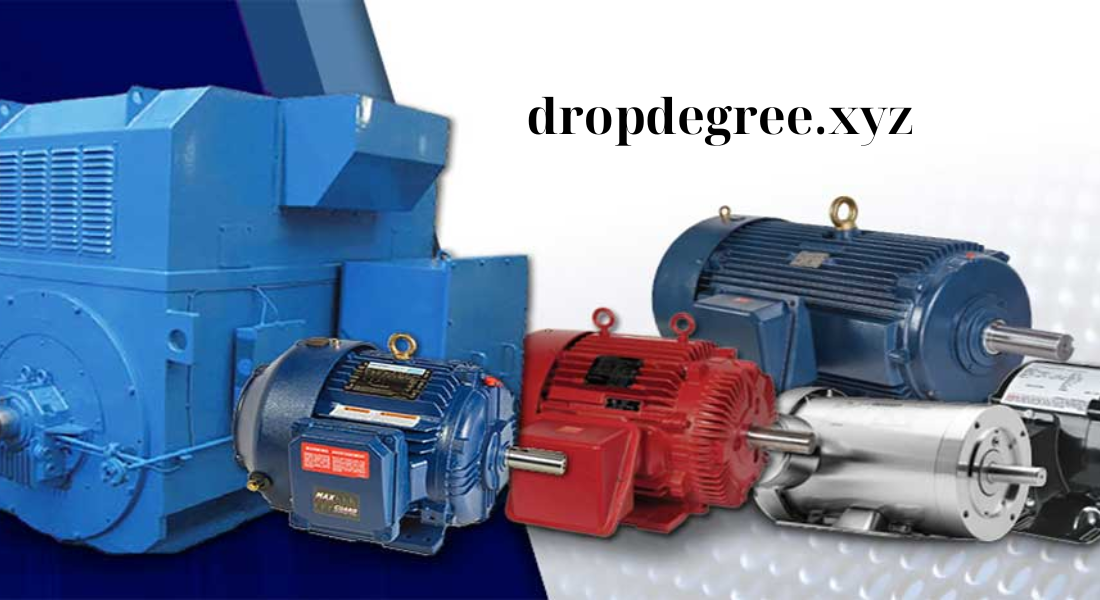Industrial Electric Motors: Types, Applications, and Benefits in Modern Industries
Industrial electric motors are essential components in countless industries, from manufacturing to energy production. They power a wide array of machinery and systems, enabling companies to perform operations with precision, efficiency, and minimal environmental impact. For businesses looking to streamline processes, improve energy efficiency, and reduce operational costs, understanding the right type of motor and its benefits can lead to significant long-term advantages.
In this article, we’ll dive deep into the various types of industrial electric motors, their applications across different sectors, and how they contribute to productivity and sustainability in modern industries.
What Are Industrial Electric Motors?
Industrial electric motors are devices that convert electrical energy into mechanical energy to perform tasks like moving machinery, driving conveyor belts, and powering production equipment. These motors are specifically designed for high-demand applications where consistent power output, durability, and efficiency are required. Industrial electric motors come in various sizes, configurations, and power outputs to meet specific application requirements.
Key Types of Industrial Electric Motors
Choosing the correct type of motor is essential for optimizing performance and energy usage. Below are some of the most common types of industrial electric motors:
1. AC Motors (Alternating Current Motors)
AC motors are among the most widely used in industrial applications due to their simplicity, durability, and energy efficiency. They operate by converting alternating current into rotational mechanical energy. AC motors can be divided further into:
- Induction Motors: Known for their robustness, they are widely used in conveyors, pumps, and fans.
- Synchronous Motors: Often utilized in precision applications, synchronous motors are ideal when constant speed is required.
2. DC Motors (Direct Current Motors)
DC motors are common in industries where a high starting torque is necessary, like in automotive and material-handling equipment. They allow better speed control and are available in:
- Brushed DC Motors: Known for simplicity, although they require frequent maintenance due to brush wear.
- Brushless DC Motors: Provide better efficiency and longevity due to the absence of brushes, making them ideal for high-speed applications.
3. Servo Motors
Servo motors offer precision control of angular or linear position, velocity, and acceleration, making them ideal for robotics, CNC machinery, and automation. These motors operate with feedback systems, allowing for precise positioning and speed adjustments.
4. Stepper Motors
Stepper motors are designed for precise control of movement and are typically used in 3D printers, CNC machines, and other applications that require accurate positioning. They move in discrete steps, which allows them to achieve precision without feedback systems.
5. Linear Motors
Linear motors produce motion in a straight line rather than rotational motion. These motors are used in applications where linear motion is essential, such as in material handling and conveyor systems.
Applications of Industrial Electric Motors in Different Industries
Industrial electric motors play an integral role in many sectors. Here’s how they power some key industries:
1. Manufacturing and Production
Electric motors power various machinery like conveyor belts, pumps, compressors, and machine tools, facilitating smooth and continuous production processes. With automation, electric motors enable higher productivity and efficiency by handling repetitive tasks accurately.
2. Automotive Industry
In the automotive industry, electric motors are used in both manufacturing processes and within vehicles themselves, such as in electric vehicles (EVs). They are also crucial for assembly lines, robotic arms, and automated equipment, helping maintain consistent quality and speed in production.
3. Energy Sector
In energy production, industrial electric motors power generators, turbines, and compressors. They are vital in renewable energy sectors, where they drive components in wind turbines, solar tracking systems, and hydroelectric plants, supporting a shift toward sustainable energy sources.
4. Aerospace
Electric motors are used in various applications, from propulsion systems to ground-support equipment. The industry often requires lightweight, high-efficiency motors that offer reliable performance under demanding conditions, making electric motors invaluable.
5. Healthcare and Pharmaceuticals
The healthcare and pharmaceutical sectors require electric motors for diagnostic equipment, automated production of pharmaceuticals, and lab automation systems. Precision and reliability are paramount, so motors used here must meet strict standards.

Benefits of Industrial Electric Motors
Investing in industrial electric motors offers numerous benefits, including:
1. Energy Efficiency
Electric motors are more energy-efficient compared to combustion engines, especially in industrial settings where energy costs constitute a major portion of expenses. Energy-efficient motors can reduce power consumption significantly, leading to lower operational costs.
2. Low Maintenance
Unlike traditional mechanical systems, electric motors have fewer moving parts, which reduces wear and tear. This characteristic translates into less frequent maintenance and a longer lifespan, which saves companies time and money in the long term.
3. Environmentally Friendly
Electric motors produce lower emissions compared to traditional engines. With industries increasingly focused on sustainability, electric motors offer a viable option to minimize their carbon footprint and adhere to environmental regulations.
4. Enhanced Precision and Control
Electric motors offer better control over speed, torque, and position, which is critical for applications requiring high precision. Automation and robotics, for instance, rely heavily on the accurate movement provided by electric motors.
5. Reliability
Industrial electric motors are designed to withstand harsh working environments. Their robustness and dependability make them ideal for applications where downtime would be costly, such as in continuous production lines or energy plants.
Factors to Consider When Selecting an Industrial Electric Motor
Selecting the right motor is essential for maximizing performance. Here are some factors to consider:
1. Power Requirements
Ensure the motor can handle the required power output. Motors that are too weak for an application may overheat, while overly powerful motors can waste energy.
2. Environment and Operating Conditions
Consider the working environment. For example, motors used in dusty or corrosive environments need additional protection, while those in high-temperature areas may require cooling systems.
3. Efficiency
Opt for motors with high energy efficiency ratings to reduce operational costs and minimize environmental impact. Energy-efficient motors often come with certifications, such as NEMA Premium or IE3, indicating superior performance.
4. Maintenance Needs
Some motors require regular maintenance, such as DC motors with brushes, while others, like brushless motors, need minimal upkeep. Understanding the maintenance demands can help in planning downtime and resource allocation.
The Future of Industrial Electric Motors
The industrial electric motor market is projected to grow significantly due to technological advancements and an increased focus on sustainable practices. New developments in motor technology include:
- Smart Motors: Equipped with IoT capabilities, smart motors can transmit data in real-time, allowing for predictive maintenance and reducing downtime.
- High-Efficiency Motors: With continuous improvements in materials and design, modern electric motors offer greater efficiency, further reducing power consumption.
- Energy-Storage Integration: Future electric motors may integrate with energy storage solutions, allowing industries to store and utilize renewable energy more effectively.
As companies continue to adopt automation and green energy solutions, the role of industrial electric motors will only become more critical. Investments in efficient, durable, and adaptable motors are proving to be essential for industries aiming for growth and sustainability.
Conclusion
Industrial electric motors are foundational to modern industrial processes, driving efficiency, precision, and sustainability. From the automotive sector to renewable energy, these motors provide the power and control needed for high-demand applications. By understanding the types, applications, and benefits of industrial electric motors, businesses can make informed choices that not only optimize performance but also contribute to a greener future.
Industrial electric motors continue to evolve, incorporating new technologies that further enhance their functionality and environmental friendliness. For industries looking to stay competitive and environmentally conscious, investing in the right electric motors is more crucial than ever.
